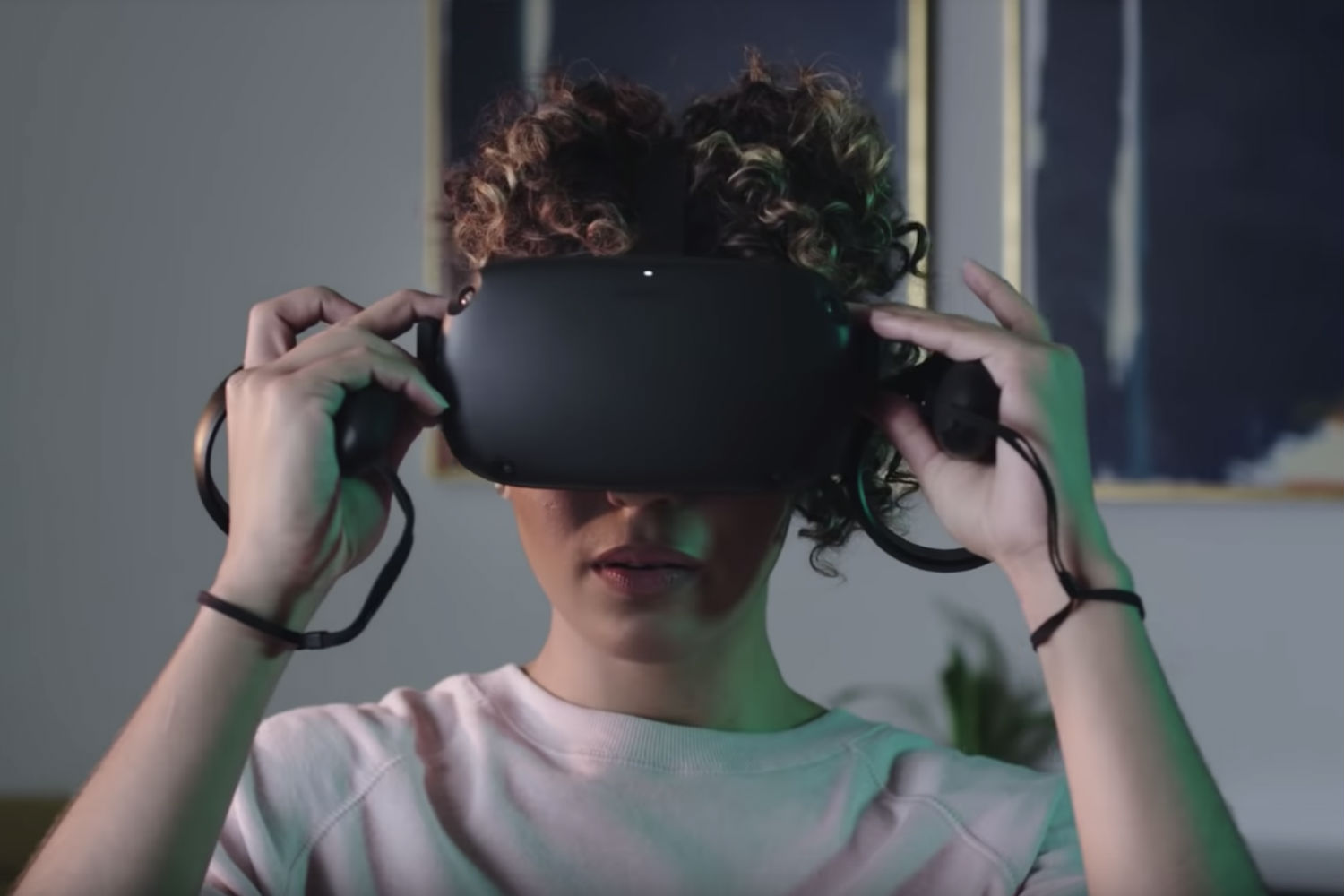
Oculus might be focusing more on making its virtual reality hardware more accessible than pushing technological boundaries, but a new report suggests it does plan to upgrade its Rift PC VR headset in 2019. The modest refresh, said to be known as the Rift S, would introduce a higher-resolution screen, and add inside-out tracking, effectively making it a PC-tethered version of its Oculus Quest headset.
While the likes of Pimax and HTC have released new high-end VR hardware like the Vive Pro in 2018, Oculus has focused more on developing its lower-end solutions. It released the Oculus Go in early 2018 and more recently the Oculus Quest, both of which are wireless VR headsets with onboard tracking and processing, requiring no additional hardware to operate. Their visuals aren’t as impressive as PC-tethered solutions like the Rift though, despite their updated hardware.
Oculus has long been expected to begin work on a second-generation Rift headset in the aftermath of the Quest’s release, but recent reports suggest that may no longer be the case. Amid rumors of the Rift 2 being shelved for now at least, the Rift S has emerged as a potential future design, TechCrunch reports.
Supposedly the Rift S would ditch the external tracking cameras of the Rift, opting instead to use the same headset-mounted tracking sensors of the Oculus Quest. That could present some problems with controller occlusion, although the setup process would be notably easier.
The sources at Oculus also suggested that the Rift S would feature an upgraded display, most likely the same one used in the Oculus Quest, which features 1,600 x 1,440 pixels per eye, for a total resolution in excess of even the Vive Pro.
Publicly, Oculus is keeping quiet about its future hardware releases, responding to a request for comment with: “While we don’t comment on rumors/speculation about our future products, as we shared last week, PC VR remains a part of our strategy and is a category we will continue to invest in. In addition to hardware, we have a robust software road map and are funding content well into 2020.”
Although Oculus appears to have had creative differences with its former CEO, it is targeting of better accessibility with VR is more in line with the thoughts of one of its other co-founders, the maligned Palmer Luckey. He recently wrote about how VR needs to offer a near-perfect experience before consumers will adopt it en masse.


